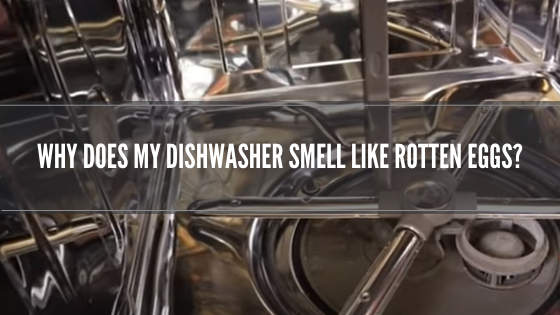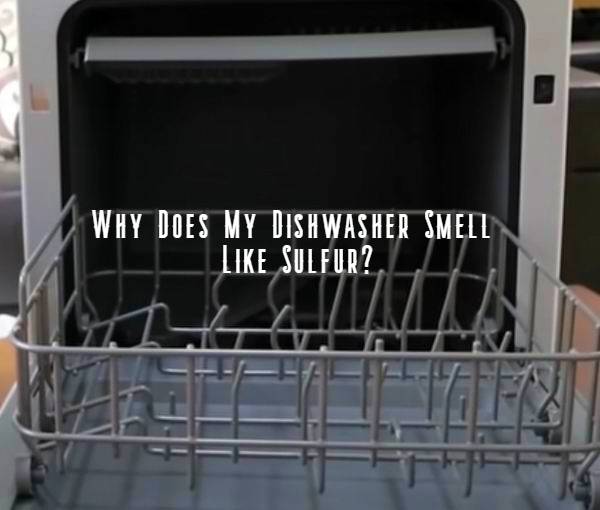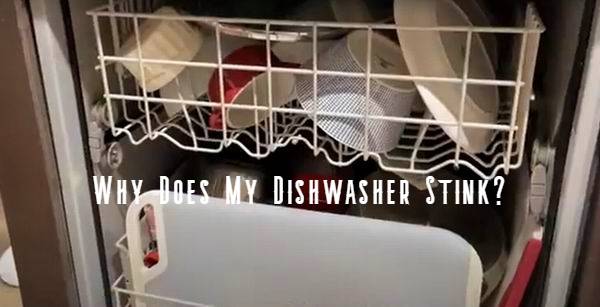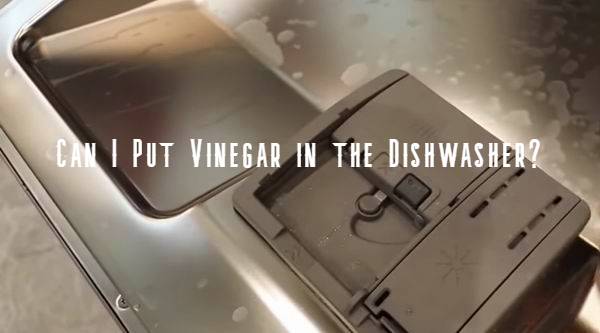
If you live in a southern state, summer becomes a challenging time for you. Hot and humid air feels heavy. I hope you experience no difficulty breathing in August. Fortunately, it’s usually cool and comfortable in San Francisco. Stellar ocean breezes temperate the air. But why does my dishwasher smell like rotten eggs? Fishy or foul odors are gnarly. Additionally, they might be harmful, causing bacteria growth and food-borne diseases. Dishwasher smell doesn’t mean your powerful kitchen appliance is janky. A grip of reasons may cause it. So, let’s sort it out and eliminate the smell.
Why Does My Dishwasher Smell So Bad?
If it happens, it’s gnarly. You shouldn’t neglect it. Bad dishwasher odors are harmful. They would:
- make you feel uncomfortable in your kitchen;
- transfer to your clean dishes and teacups;
- affect the taste of your delicious food;
- damage your mental dishwasher, deteriorating its operation.
In summer, it could be hella dangerous. A warm and humid environment promotes and accelerate bacteria growth. Mold might contaminate your kitchen, dishwasher, and tubes. Additionally, humid air traps odors, increasing the intensity of odors.
During camping trips, it’s hella important. Do you take your small handy machine along? A portable dishwasher vs built in is much more compact and easy to use. It’s beneficially lightweight and intuitive to hook up. On-site sewage disposal should meet the highest requirements.
Discharging dirty water to a camping sewage system is safe. You will be completely sure it doesn’t back up through the drain hole. Prefer the dishwasher that includes the stellar sterilization feature. During a trip, in your caravan or on a camping site, it’s hella useful.
Why Does My Dishwasher Smell Like Sulfur?
A new dishwasher has to be mental. It looks stylish, operating seamlessly and easily. Do you recognize a slight plastic smell? It might happen during a grip of the first cycles. In a couple of days, it’s over. If your handy machine is old, it’s a different story. Operating for a grip of years, it fouls with grime and grease.

It clogs, requiring regular cleaning and maintenance. For real, a bad smell commonly comes from the drain. It releases hydrogen sulfide. This harmful gas is poisonous and explosive. Perceiving a smell like rotten eggs in your kitchen, don’t get butthurt. It could happen due to:
- janky garbage disposal;
- clogging in the draining process;
- drain hose issues;
- food particles accumulation;
- harsh dishwasher detergents.
Why don’t you use your favorite organic non toxic dishwasher detergent? It may eliminate the gnarly smell. Safe and non-toxic, it makes your greasy dishes sparkling clean. Harsh detergents contain chemical surfactants, including sodium hydrochloride. It pollutes your kitchen air with unpleasant smells. Additionally, it damages the surfaces of delicate items.
Why Does the Inside of My Dishwasher Smell Like Rotten Eggs When I Run it?
Your new kitchen helper shouldn’t cause any problems. The plastic smell is not common: it’s usually not bad. Only if you forget to remove some packaging materials from its sides, it would happen. Heating up, a grip of stickers would smell a bit. A plastic fork or container can fall directly into the heating element. It would cause an unpleasant odor.
Meanwhile, installation issues might become heavy. Your cool dishwasher for cristal and wine glasses might be small or full-size. It meets your traveling or domestic household needs. Its weight and capacity are up to you. A permanent or temporary installation is possible.
See about the quality and position of the drain tubes. The smell would appear due to their:
- bending;
- clogging;
- damage;
- malfunction;
- improper positioning.
The fishy, toxic smell apparently comes from inside of the sewer. Anaerobic bacteria produce it. They create sulfur compounds to generate energy. Thus your drain hose is to provide a direct connection. It shouldn’t prevent wastewater from flowing to the sewer.
Why Does My Dishwasher Smell Like a Dead Animal?
Commonly, a pump routes dirty water out from your dishwasher. A check valve prevents it from returning to your clean dishes. Only a kink or blockage in the hose may impair its normal operation. A faulty pump or motor would be a heavy error. The air gap and the hose are easy to check and reposition or unclog.

For sure, your stellar machine’s design matters. What is a tall tub dishwasher? Featuring a dual-motor construction, your roomy kitchen appliance is efficient. Additional jets don’t increase water pressure. On the top basket, it’s 60% higher than on the bottom. So, you easily load your delicate china and glassware inside.
Including no kick plate at the bottom, these heavy-duty devices are efficient. They come with a grip of sensors that prevent leaks. Is your dishwasher cost-effective? It would reuse water a grip of time. Don’t forget to pay attention you your tap water quality. Hard or contaminated, it would cause fishy odors and other issues.
How Do You Get Rid of a Bad Smell in the Dishwasher?
If you have just come back from a trip, an unpleasant surprise would wait for you at home. Have you left your dishwasher with the door closed? Trapping moisture inside, it harbors bacteria and mold. Try to keep the door open. In a city with high moisture content in the air, like San Francisco, a kind of dehumidification is necessary.
Hard or contaminated water may become degrading too. It leaves limescale residue. Accumulating various parts of your dishwasher, it blocks their operation. Food particles or debris can clog them too, causing an unpleasant smell. Thus, to eliminate it, check the areas, like:
- door gaskets;
- food/grease trap;
- air gap;
- filter;
- thermostat.
A janky thermostat won’t let your dishwasher bring the water temperature up. It causes a buildup of grease inside it. Thus, remove the debris carefully, eliminating the blockage. Don’t forget about the drain pipe. Clean it thoroughly, using a special cleansing agent. Boiling water and baking soda might be helpful too.
Can I Put Vinegar in the Dishwasher?
Use any household cleaners and chemicals to unclog your sewer pipes. Unless your sewage system is septic, it’s legal and efficient. For sure, this solution is not the most eco-friendly but it works. Vinegar and baking soda are healthy, septic-safe options. They contain no harmful surfactants or sulfates but break down the grease and residue.

Thus, have you unclog the pipes and critical parts? If you still perceive the smell, wipe out the walls, gaskets, racks, and gaskets. Quite naturally, dishwashers with stainless steel interiors are beneficial. These options are quieter and more hygienic. But all rubber and plastic parts are hella durable.
You can scrub them with brushes and wet sponges, using liquid soap and hot water. Avoid harsh chemicals like bleach. For sure, it won’t damage the essential dishwasher’s parts. But plastic absorbs odors. Additionally, the toxic cleanser shouldn’t get on the surface of your glasses and plates. Don’t forget to rinse the dishwasher interior carefully. It is to be chemical-free when you load it with dishes.
How Do I Clean the Filter in My Dishwasher?
There are many possible reasons for the gnarly smell. It may appear inside your dishwasher due to blockage or high humidity issues. Make sure your sewage system and drain pipes are in good repair. Meanwhile, try to prevent the clogs, cleaning your dishwasher regularly.
Do you run your handy machine every day? If so, try to clean it once a week or so. A filter is one of the basic dishwasher parts. Is it self-cleaning? It narrows down the problem. Anyway, check it from time to time. Otherwise, do the following tricks:
- remove the filter;
- clear the food residues out;
- use mild dish soap and warm water for cleaning;
- disinfect the surface with vinegar or soda.
If stains and residue remain, scrub the mesh with a small brush carefully. Use baking soda or a special dishwasher cleansing agent. It is to be non-toxic, sparing to the surfaces but efficient to remove grease and residue. Finally, rinse and install your filter properly. Lock it securely to prevent damage and go on using your stellar machine.
Bottom Line
If your dishwasher smells bad, it’s gnarly. These issues may happen due to drain pipe clogging or high air humidity. Don’t wait until they become heavy. Clean your kitchen appliance, its interior, and filter regularly. If it features no hard food disposer, pre-rinse your dishes especially carefully. Don’t forget to use a water softener. Prevent clogging and blockage issues to get fresh and clean kitchenware every day.
